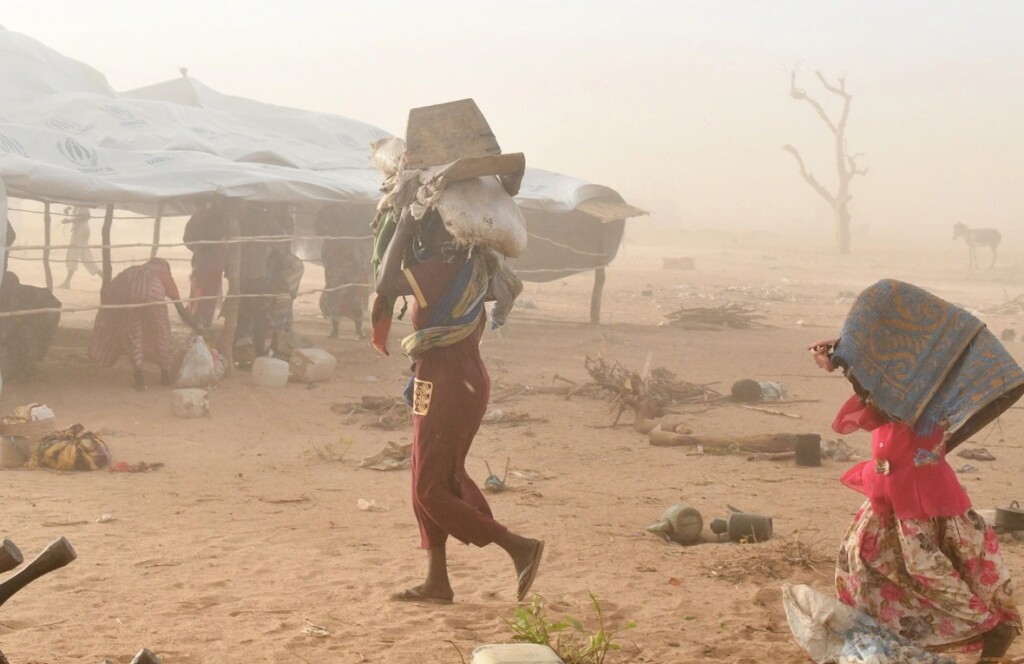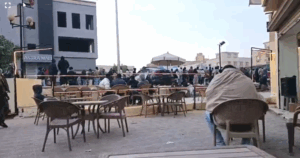CAR grapples with Sudan refugee crisis, UN coordinator appeals for int’l aid

Sudanese refugees seek shelter from a sandstorm in the border town of Amdafok in the Central African Republic (Xavier Bourgois / UNHCR)
The UN resident coordinator in the Central African Republic (CAR), Mohamed Ayweya, urged the international community not to abandon nations facing mounting global and regional crises. Speaking at a press conference in the Geneva UN HQ on Wednesday, he cited the recent influx of approximately 70,000 people from Sudan into CAR overnight, which has compounded the nation’s existing humanitarian challenges.
He stressed that CAR, already grappling with poverty and the impacts of climate change, is now facing an intensified crisis, with nearly 130,000 people in the region requiring immediate humanitarian assistance.
Ayweya argued that the arrival of those fleeing Sudan has placed an additional burden on the local population, who had to take them in and “share what little food, water and services they had left in those areas”.
Pointing to the role of climate change in the situation, he added: “The floods cut off the region hosting refugees from Sudan, Chad, and the rest of the country. This makes it impossible for humanitarian aid to reach the region except by air, which is an expensive option in an economically difficult situation.”
The UN coordinator called on international donors to provide more funding to the people of the Central African Republic as their country continues to confront the activities of armed groups, stressing the need to provide them with “the basic services they need to live in dignity”.
Displaced people
The humanitarian aid commissioner for the Blue Nile region, Ramadan Hamad, commented on similar circumstances at the Ethiopian-Sudanese border, where the number of people stranded has now reached 25,000.
“We are in discussion with the competent authorities, regarding the return of those stranded at the Ethiopian border,” he told Radio Dabanga.
The number of people displaced from Khartoum to the Blue Nile reached 63,000, with an estimated 31 centres for shelter. 52,000 of the displaced peoples received assistance through the World Food Programme, and 36,000 received further humanitarian aid.
He said that a meeting will take place on tomorrow for all UN agencies and humanitarian organisations, headed by the governor of the region, for the purpose of discussing the humanitarian situation and a number of other issues, including the opening of schools and the development of a plan to monitor the conditions of refugees residing in South Sudan and Ethiopia.











 and then
and then